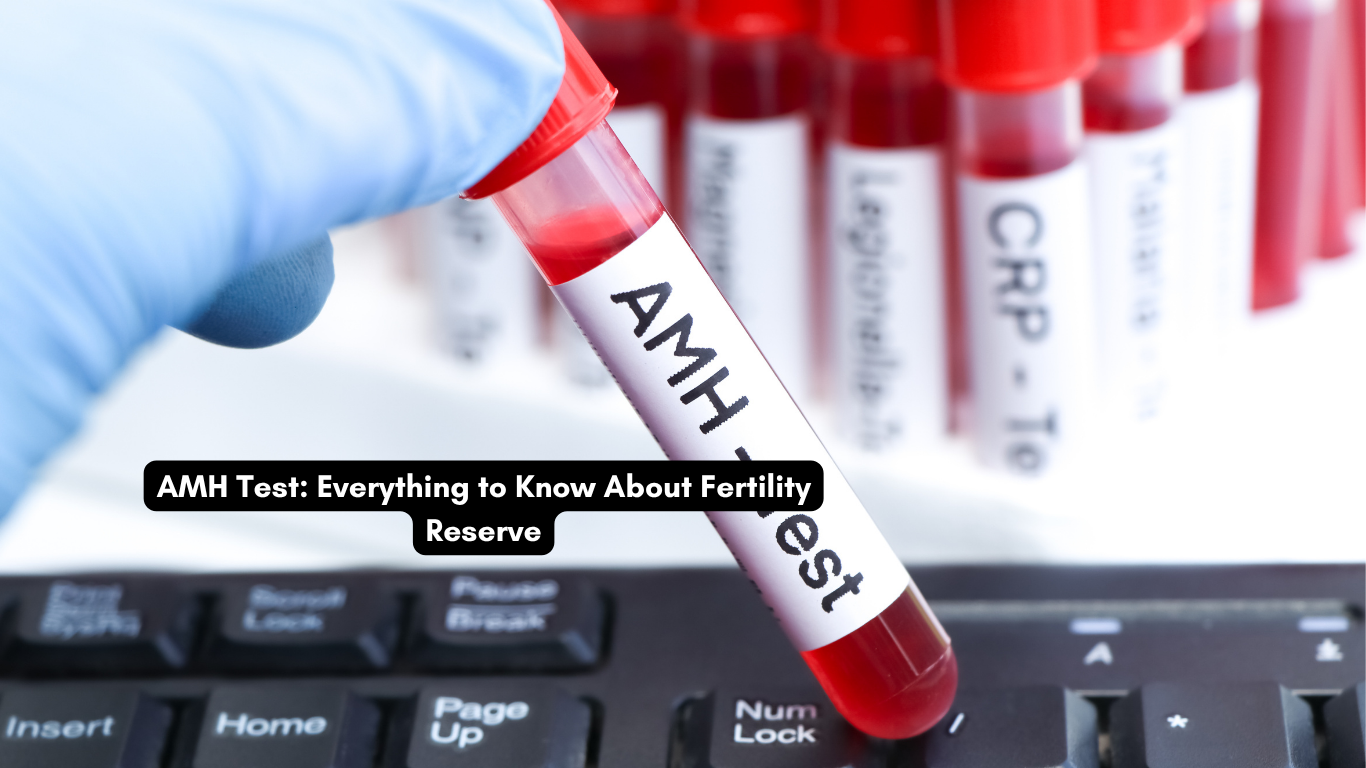
Introduction
Trying to start a family is one of life’s most emotional and hopeful journeys. For many couples, In Vitro Fertilization (IVF) offers a beacon of hope. But did you know that something as common as smoking could quietly sabotage your IVF success? Whether it’s an occasional puff or a long-term habit, smoking affects fertility in both men and women.
In this article, we’ll explore how smoking influences IVF outcomes, what science says about it, and how you can boost your chances of conception with expert guidance from an IVF Specialist Doctor in New Delhi.
. Understanding IVF and How It Works
In Vitro Fertilization (IVF) is a process where eggs and sperm are combined outside the body in a lab setting. Once fertilization occurs, the embryo is transferred to the uterus, giving couples struggling with infertility a chance to conceive.
IVF success depends on various factors-- age, lifestyle, hormonal balance, and overall health-- and smoking is one lifestyle factor that significantly decreases the odds of success.
2. The Role of Lifestyle in IVF Success
Think of your body as a garden and your reproductive system as fertile soil. To grow a healthy seed (embryo), the soil must be nourished, hydrated, and toxin-free. Smoking introduces toxins that damage this "soil," affecting both egg and sperm quality.
Maintaining a healthy lifestyle, avoiding alcohol, and quitting smoking can dramatically improve IVF results.
3. How Smoking Affects Fertility in Women
Smoking introduces over 7,000 chemicals into the body, many of which are harmful to reproductive health.
Key effects include:
Reduced ovarian reserve: Smoking accelerates egg loss, leading to early menopause.
Poor egg quality: Nicotine and carbon monoxide damage DNA within the eggs.
Fallopian tube dysfunction: Smoking affects cilia movement, increasing ectopic pregnancy risk.
Hormonal imbalance: It disrupts estrogen levels, which are essential for ovulation and implantation.
Even if a woman appears healthy, smoking may quietly interfere with her chances of conception through IVF.
4. The Impact of Smoking on Male Fertility
Smoking doesn't just affect women-- it plays an equally destructive role in men's fertility health.
Common impacts include:
Low sperm count: Studies show smokers often have 20% lower sperm counts.
Poor motility: Sperm movement is slower, making fertilization harder.
DNA damage: Smoking causes sperm DNA fragmentation, leading to miscarriages or embryo failure.
Hormonal disruptions: Testosterone levels fluctuate, reducing sexual health and fertility.
Couples must realize that both partners' habits influence IVF outcomes.
5. Can Smoking Reduce IVF Success Rates?
Absolutely. Several studies have confirmed that smoking drastically lowers IVF success rates.
Smokers may need twice as many IVF cycles compared to non-smokers to achieve pregnancy. Additionally, the miscarriage rate among smokers is notably higher due to genetic damage in embryos.
Quitting smoking can increase IVF success by up to 40%, according to reproductive health experts.
6. What Studies Reveal About Smoking and IVF Outcomes
Research consistently highlights the link between smoking and poor IVF performance:
Women who smoke require higher doses of fertility medication.
Egg retrieval often yields fewer and less mature eggs.
Embryo quality declines significantly among smokers.
Implantation rates drop because smoking harms uterine lining receptivity.
In simpler terms, smoking not only reduces your chances of conception but also affects every stage of the IVF process-- from egg development to embryo implantation.
7. Secondhand Smoke and IVF-- A Hidden Risk
Even if you don't smoke, exposure to secondhand smoke can still harm your fertility.
Studies show that passive smokers experience similar hormonal imbalances and egg quality issues as active smokers.
For couples undergoing IVF, it's crucial to maintain a smoke-free home environment to protect both partners' reproductive health.
8. How Long Before IVF Should You Quit Smoking?
Experts recommend quitting at least 3-- 6 months before starting IVF This allows your body to detoxify, repair cell damage, and improve blood circulation.
It's never too late to quit. Even stopping smoking a few weeks before your IVF cycle can enhance egg and sperm quality.
9. Benefits of Quitting Smoking Before IVF.
When you quit smoking, your body begins to heal almost immediately.
Benefits include:
Better oxygen supply to reproductive organs.
Improved hormonal balance and ovulation.
Healthier uterine lining for embryo implantation.
Enhanced sperm count and motility.
Increased chances of successful pregnancy and healthy baby.
Think of quitting as the first major gift you can give to your future child.
10. Tips to Quit Smoking for Fertility Health
Quitting smoking may be challenging, but with determination and support, it's achievable.
Practical tips:
Set a quit date and prepare mentally.
Avoid triggers like coffee or alcohol.
Join a support group for accountability.
Try nicotine replacement therapy (if approved by your doctor).
Exercise and meditate to manage cravings.
An IVF Specialist Doctor in New Delhi can also connect you with smoking cessation programs designed for fertility patients.
11. Role of Diet and Lifestyle After Quitting
After quitting smoking, nourish your body with foods rich in antioxidants like fruits, vegetables, nuts, and whole grains.
Stay active, hydrate well, and limit caffeine intake. These habits not only restore fertility but also prepare your body for a healthy pregnancy.
12. How an IVF Specialist Doctor in New Delhi Can Help
Consulting an IVF Specialist Doctor in New Delhi is essential for couples planning IVF after quitting smoking. These specialists can:
Assess your reproductive health.
Recommend fertility-boosting treatments.
Suggest supplements for egg and sperm quality.
Personalize your IVF protocol for the best outcomes.
Many leading fertility centers in New Delhi also offer lifestyle counseling, ensuring both partners are in optimal health before IVF.
13. Emotional Support During the IVF Journey
Fertility treatments can be emotionally draining, especially when dealing with lifestyle changes like quitting smoking.
Surround yourself with supportive people-- your partner, friends, or a counselor. Meditation, journaling, or simply talking about your emotions can make a big difference.
14. Common Myths About Smoking and IVF
Let's clear up some common misconceptions:
" One cigarette won't matter." Even minimal smoking affects egg and sperm DNA.
" I'll quit once I get pregnant." Damage begins before conception; quitting later won't reverse it.
" Only women need to quit." Male smoking impacts embryo quality too.
" IVF can fix everything." IVF can not undo the genetic effects of smoking; it only helps with conception.
15. Final Thoughts-- A Smoke-Free Path to Parenthood
Parenthood begins long before conception-- it starts with healthy choices. Smoking may offer momentary comfort but comes at a steep price: your fertility.
Quitting smoking can transform your IVF journey, increasing your chances of holding your baby sooner. With expert guidance from an IVF Specialist Doctor in New Delhi, you can embrace a healthier, smoke-free path to parenthood.
FAQs
1. Does smoking affect both men and women during IVF?
Yes. Smoking damages eggs in women and reduces sperm quality in men, lowering overall IVF success rates.
2. How soon after quitting smoking can IVF be started?
Ideally, wait for at least 3-- 6 months after quitting to allow your body to recover and optimize fertility.
3. Can secondhand smoke affect IVF results?
Yes. Even passive exposure to smoke can reduce egg quality and affect implantation rates.
4. Can IVF still succeed if one partner smokes?
While it's possible, success rates are significantly lower. Both partners should quit for the best results.
5. How can an IVF Specialist Doctor in New Delhi help couples who smoke?
They provide customized fertility plans, health counseling, and guidance on quitting smoking to improve IVF outcomes.
In Summary:
Smoking and IVF are a poor mix. But with commitment, medical support, and lifestyle change, you can rewrite your fertility story. Quitting smoking today could be the key to a healthy pregnancy tomorrow-- a small sacrifice for a lifelong joy.









Write a comment ...